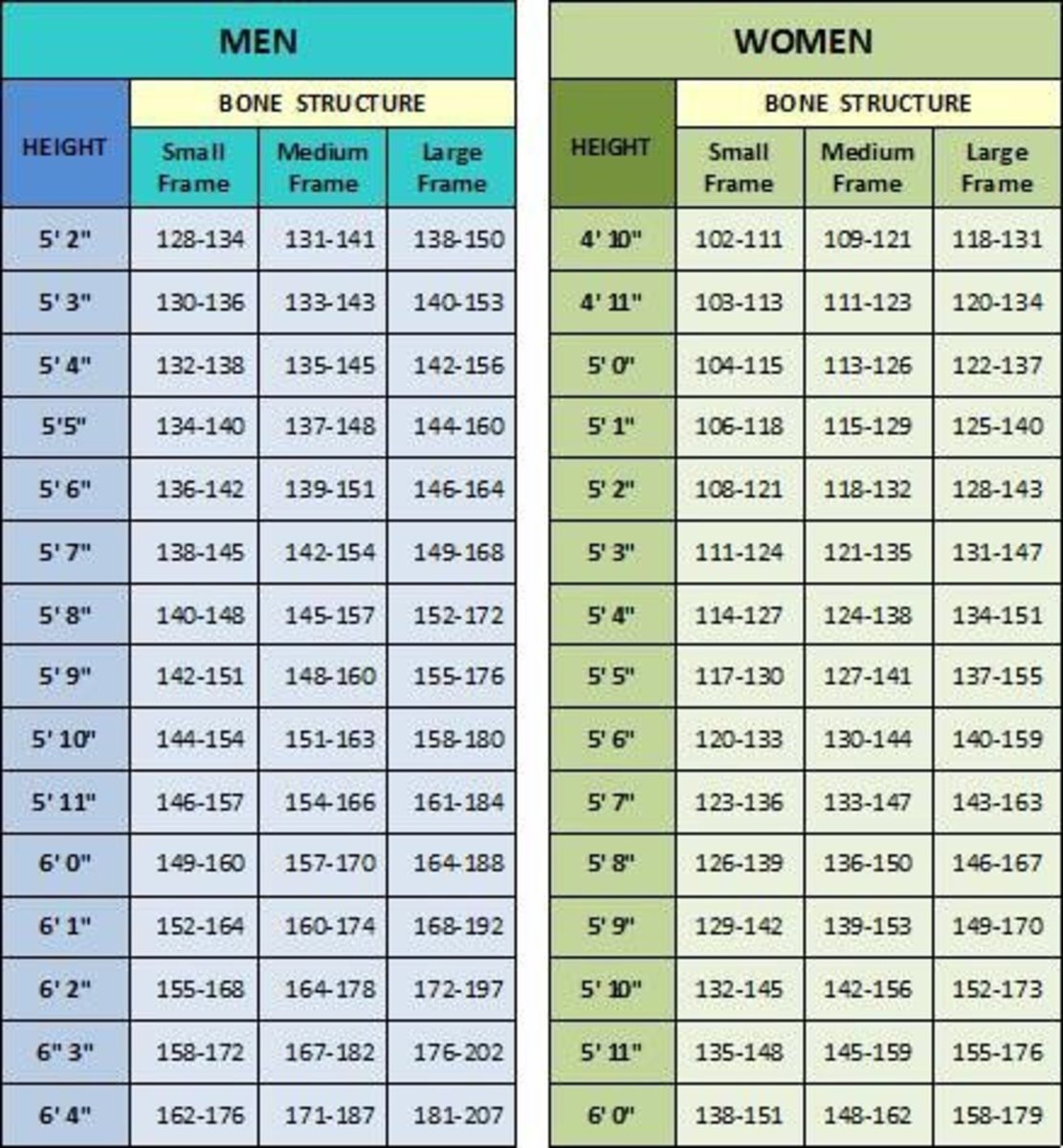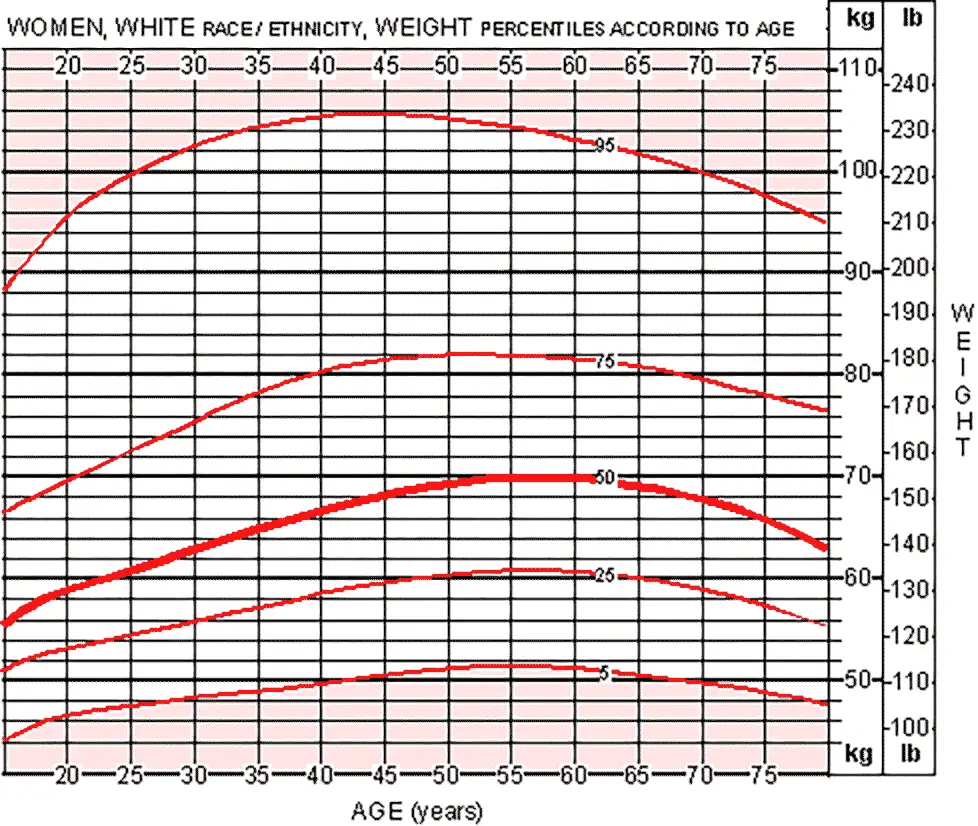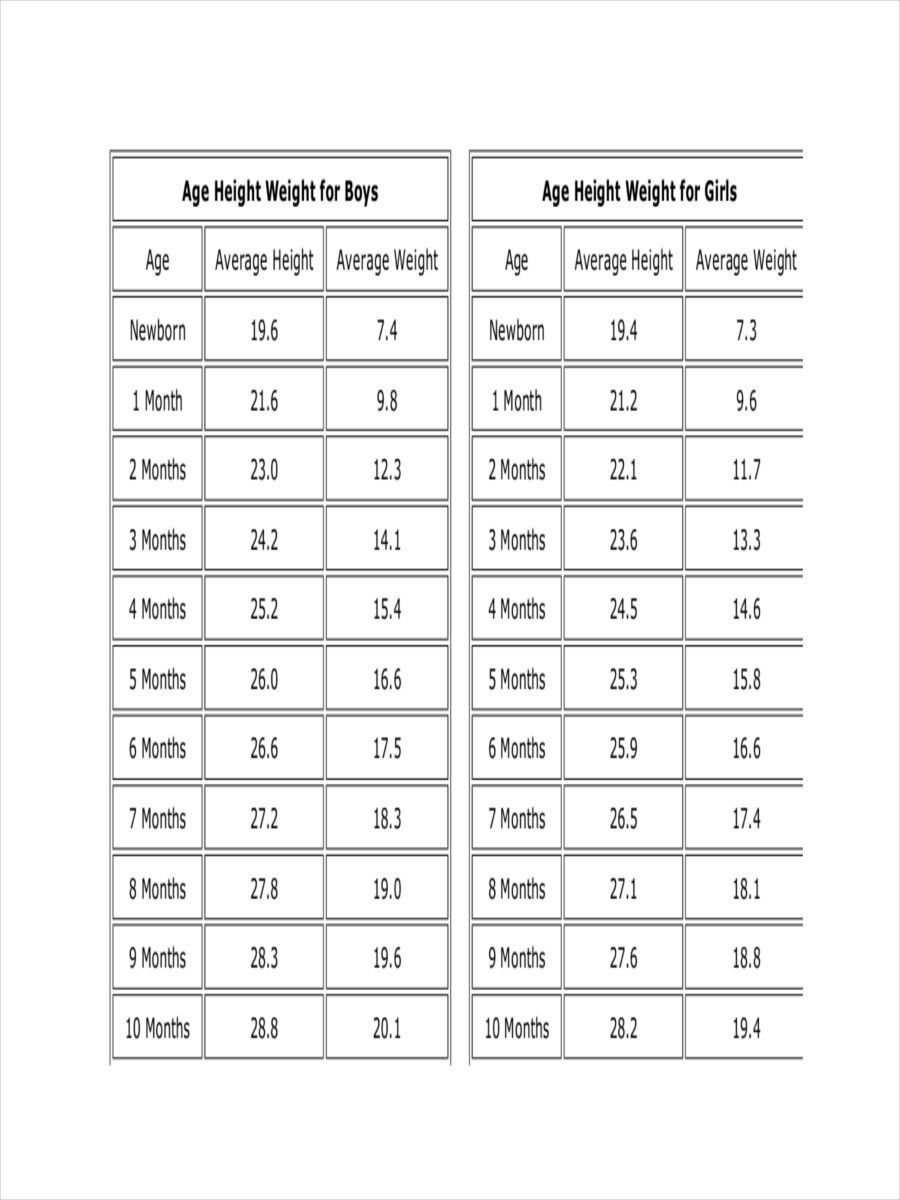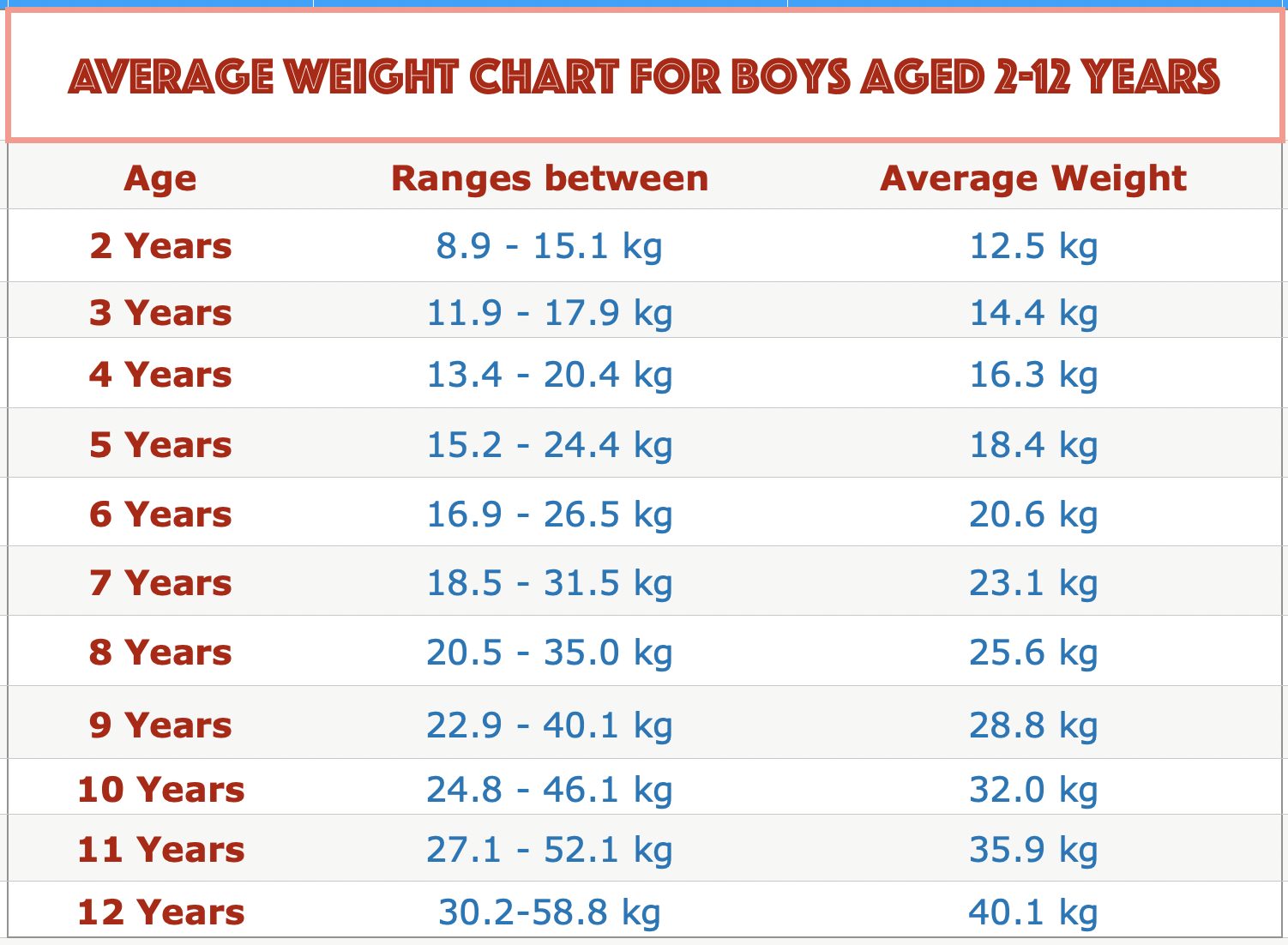The average height to weight ratio can vary significantly depending on age, gender, and ethnicity. Generally speaking, adults tend to be slightly taller and heavier than children and adolescents. For men, the average height is around 5 feet, 9 inches, with an average weight of 195 pounds. For women, the average height is around 5 feet, 4 inches, with an average weight of 166 pounds. The World Health Organization (WHO) recommends a healthy body mass index (BMI) of 18.5 to 24.9 for adults.
BMI is a measure of body fat based on your height and weight. It is generally accepted that people with a BMI of less than 18.5 are underweight, and those with a BMI above 24.9 are overweight. It is important to maintain a healthy weight for overall health. Being underweight or overweight can increase the risk of chronic diseases such as diabetes, heart disease, and certain types of cancer. Eating a healthy diet and getting regular exercise are important steps to take to help achieve and maintain a healthy weight. Overall, the average height to weight ratio is a helpful guide, but it is important to remember that everyone is different and there is no one-size-fits-all approach to health and wellness. Knowing your own height and weight and understanding what a healthy BMI looks like for your body can help you create a plan for reaching and maintaining a healthy weight.
what s the right weight for my height

It is important to maintain a healthy body weight in relation to your height. Generally, for the average height of an adult, the ideal weight range would be between 110 and 140 pounds. However, body weight is more than just a number – in general, a healthy weight for an individual is based on their body frame size and body shape. The most accurate way to determine the right weight for your height is to calculate your body mass index (BMI). To do this, you will need to divide your weight in kilograms (kg) by your height in meters (m) squared.
A BMI of 18.5 to 24.9 is considered healthy. It’s also important to consider factors such as muscle mass, age, and gender when determining an ideal weight. For example, men tend to have more muscle mass than women, which means they may have a higher BMI without being overweight. In order to maintain a healthy weight, it’s important to eat a balanced diet and exercise regularly. Doing so helps keep your body healthy and strong, and helps you achieve and maintain a healthy BMI.
What is my ideal weight according to height?
When it comes to determining the ideal weight for someone according to their height, it is important to consider the average height to weight ratio. Generally, the average ratio is that of a person who is 5’5″ should weigh between 125-155 pounds. For people who are 6’0″ or taller, the ideal weight range is typically between 146-176 pounds. On the other hand, those who are 5’0″ or shorter should weigh between 105-125 pounds. When calculating ideal weight, it is important to remember that everyone’s body type is different, so these ranges may not be what is best for any given individual.
It is important to consult a doctor to get advice tailored to an individual’s body type and lifestyle. Creating a healthy lifestyle and building a balanced diet are key to maintaining a healthy weight. Regular exercise and eating a balanced diet that is high in fiber and low in saturated fat and sugar can help to keep a person within their ideal weight range. Finally, it is important to remember that the average height to weight ratio should only be used as a guideline, not a strict rule. Everyone’s body type and lifestyle is different, and so it is important to speak to a doctor to get advice tailored to an individual’s specific needs.
What is the ideal waist to height ratio?
It’s important to measure your waist to height ratio to maintain a healthy weight for your height. Generally, for an average height person, the ideal waist to height ratio is 0.5 or less. This means that the waist should be half the size of your height. For example, if you are 5 feet tall, the ideal waist measurement should be 2.5 feet or less. Having an ideal waist to height ratio is important to maintain overall health.
It helps to prevent the risk of developing chronic diseases such as type 2 diabetes, heart disease, and stroke. It can also help to reduce your risk of becoming overweight or obese. Eating a healthy diet and getting regular exercise are key components of maintaining an ideal waist to height ratio. Eating plenty of fruits and vegetables, as well as limiting saturated fats and processed foods, is important for maintaining a healthy waist size. Additionally, exercising regularly can help to reduce your waist size and help you to maintain a healthy weight. Overall, the ideal waist to height ratio is an important measure of physical fitness and health. It’s essential to measure your waist to height ratio regularly to ensure you’re maintaining a healthy weight for your height. Eating a healthy diet and getting regular exercise are important for maintaining an ideal waist to height ratio.
How do you calculate the ideal body weight?
Knowing your ideal weight helps you to stay within a healthy range. The ideal body weight calculation depends on your height and gender. Generally, the taller you are, the heavier you should be. For adults, the ideal body weight calculation can be done using the Body Mass Index (BMI). This calculation takes into account your height in relation to your weight.
It is calculated by dividing your weight in kilograms by your height in meters squared. The World Health Organisation (WHO) provides guidelines to determine whether you are within a healthy weight range. If your BMI is below 18.5, you are considered to be underweight. If your BMI is between 18.5 and 24.9, you are considered to be within a healthy weight range. A BMI above 25 is considered to be overweight, and above 30 is considered to be obese. It is important to note that the ideal body weight calculation does not take into account body composition or muscle mass. If you are an athlete or have a large amount of muscle, you may have a higher BMI than expected but still be within a healthy weight range.
How to calculate the perfect weight?
Calculating the perfect weight for a given height is not an exact science. Generally, for adults, the average height to weight ratio is known as the body mass index. To calculate the ideal weight for your height, you will need to first calculate your body mass index (BMI). This is calculated by dividing your weight in kilograms by your height in metres squared. A BMI of 18.5 to 24.9 is considered healthy, while a BMI below 18.5 is considered underweight and a BMI of 25.0 or higher is considered overweight.
After finding your BMI, you can use an online BMI calculator to find your ideal weight based on your height. It is important to note that the BMI is not always an accurate measure of health, as it does not take into account muscle mass. Therefore, it is best to speak to a doctor or nutritionist to determine the ideal weight for your body type. In addition, it is important to remember that it is better to aim for a healthy weight than an ideal weight. This can be achieved through healthy eating habits, regular exercise, and lifestyle changes. Being at a healthy weight can help prevent a range of health issues and will help you feel better overall. By calculating your BMI, you can get an idea of your ideal weight, however, it is best to consult a doctor for an accurate assessment. With the help of a doctor, you can achieve your ideal weight and maintain optimal health.
What is the ideal weight for me?
It can be a bit tricky to determine the ideal weight for someone since it depends on factors such as age, body type, height, and gender. Generally speaking, people are considered to have a healthy weight if their Body Mass Index (BMI) is between 18.5 and 24.9. The average height to weight ratio is usually used as a general guide to determine the ideal body weight for adults. According to the ratio, an average woman who is 5 feet tall should weigh between 104 and 131 pounds, while an average man who is 5 feet tall should weigh between 119 and 150 pounds. However, it’s important to remember that this is just a general guide and it may not be appropriate for everyone.
There are many other factors to consider when calculating the right weight for an individual. Different body types, medical conditions, and genetics in particular can all have an impact on the ideal weight for a person. It’s always a good idea to consult a doctor or dietitian to determine the ideal weight for a person. They can help decide the best course of action and provide tailored advice according to a person’s individual needs. To summarize, the average height to weight ratio is a good starting point to determine the ideal weight for an individual. It’s always best to seek professional advice from a doctor or dietitian for an accurate assessment of a person’s optimal weight.
weight to height average chart

A weight to height average chart can help people evaluate their own body weight and compare it to a standard set of values. The average weight to height of a person is determined by a chart based on the body mass index (BMI). BMI is calculated by dividing a person’s weight in kilograms by the square of their height in meters. It is important to note that this chart is only a guideline and can vary depending on individual body type and body composition. The chart is divided into categories, such as underweight, healthy weight, overweight, and obese.
Each category has a range of BMI values for a given height. For example, an average weight for a person of 5’9″ would be between 125 and 160 pounds. Weight to height average chart can also be used to track changes in weight over time. It is important to note that these charts can be useful in understanding how a person’s weight is changing, but it should not be used as a substitute for medical advice. Overall, weight to height average charts are a helpful tool for understanding what the average weight is for a particular height. It is important to remember that this chart is only a guideline and should not be used as a substitute for a medical consultation.
How much weight should be according to height?
For average height to weight, it is generally recommended that the average person should weigh between 100 to 150 lbs, depending on their height. For example, a person who is 5’6″ tall should weigh between 120 to 180 lbs. It is important to note that this range can vary depending on body type, such as if a person is muscular or has a large bone structure. For those who are shorter than 5’6″, it is recommended that the ideal weight should not exceed 120 lbs. For those who are taller than 5’6″, the ideal weight should not exceed 180 lbs.
It is also important to remember that muscle mass and body fat should be taken into account when determining the ideal weight. For example, a person with a lot of muscle mass may weigh more than someone of the same height without any muscle. In summary, the ideal weight for those of average height should range from 120 to 180 lbs, depending on body type and muscle mass. However, it is important to note that everyone’s ideal weight is unique and requires an individual assessment.
What is more than the appropriate weight for height?
When we talk about average height to weight, it is important to consider what is considered an appropriate weight for an individual’s height. Generally, if a person’s weight is significantly higher than what is expected for their height, this can cause many health risks. Being at a healthy weight for your height is essential for optimal health and well-being. This is because being overweight increases the likelihood of developing diseases such as type 2 diabetes, high blood pressure and even certain types of cancer. Those who are overweight can usually benefit from losing weight and maintaining a healthy weight.
It is important to remember that it is not just about the number on the scale, but also about having a healthy body fat percentage. For adults, the average height to weight ratio is generally between 18.5 and 24.9. Anything that falls outside this range is considered more than the appropriate weight for height. People who have a body mass index (BMI) higher than 25 are considered to be overweight, while those with a BMI higher than 30 are considered obese. It is important to remember that having an appropriate weight for height is essential for good health. There are a variety of ways to help reduce body weight, such as eating a balanced diet, exercising regularly and avoiding unhealthy habits such as smoking and excessive alcohol consumption. Making these lifestyle changes can go a long way in helping to maintain a healthy weight.
How to determine your BMI score?
Determining your BMI (Body Mass Index) score is an important step in understanding your health. BMI is a measure of body fat based on your height and weight. To find your BMI score, simply measure your height and weight and then input these numbers into the BMI calculator. If you are an average height to weight person, your BMI score should generally be within the “normal” range of 18.5 to 24.9. If your BMI is higher than this range, you may be classified as “overweight”.
Conversely, if your BMI is lower than 18.5, you may be classified as “underweight”. It is important to note that BMI is not a perfect measure of health, as it does not take into account factors such as muscle mass or bone structure. However, it is still a useful tool in helping to determine if you are at a healthy weight. It is also important to remember that you should not use BMI as a definitive measure of health. In order to make sure you are in the best physical health possible, it is important to also consider other factors such as exercise, diet and lifestyle. In conclusion, a BMI score can give you a good indication of your overall health. By measuring your height and weight, you can easily calculate your BMI score and determine if you are an average height to weight person. However, it is important to remember that BMI is not the only indicator of health, and other lifestyle factors should be taken into consideration.
What is the ideal height to weight ratio?
An average height to weight ratio is usually determined by age, gender, and body type. Generally, people with a higher body mass index (BMI) are considered overweight. A BMI of 18.5-24.9 is considered normal. For adults, the ideal height to weight ratio should be within these parameters. An ideal weight should be proportionate to one’s height.
This means that a person who is 5’6” should weigh no more than 145 pounds, while someone who is 6’3” should weigh no more than 200 pounds. It’s important to note that this ideal ratio may vary slightly depending on the individual’s frame size. If a person has a small frame, their ideal weight may be slightly lower than the average, while a person with a larger frame may have an ideal weight slightly higher than the average. In addition to this ideal height to weight ratio, other factors such as diet, exercise and lifestyle should be taken into consideration when it comes to overall health. Eating a balanced diet and engaging in regular physical activity are important for maintaining optimal health. Making healthy lifestyle choices can help individuals reach and maintain a healthy weight. Lastly, it’s important to remember that these ideal ratios are guidelines, not absolutes. Everyone is different and it’s important to talk to a doctor to get an individualized assessment of the ideal height to weight ratio.
average weight and height

The average weight and height of a person can vary greatly depending on age, gender, and ethnicity. Generally speaking, men tend to be taller and heavier than women. Generally, the average healthy weight for an adult male is between 106 and 197 pounds, and the average height ranges from 5 feet 2 inches to 6 feet 2 inches. For an adult female, the average healthy weight range is between 97 and 163 pounds and the average height is between 4 feet 11 inches and 5 feet 6 inches. When it comes to average height to weight ratio, the ideal weight for a person of average height would be around 130 pounds for males and 112 pounds for females.
However, this number can vary greatly depending on the person’s body composition and muscle mass. It is important to note that these numbers are only averages and should not be used as a strict rule. Everyone’s body is unique and requires different amounts of nutrition and exercise to maintain a healthy weight. It is important to discuss any weight loss or gain with a medical professional to ensure proper health.
What is the ideal height for a man?
The average height to weight ratio for a man is generally accepted to be between 5’10” and 6’2″. A man who is considered to be of a healthy weight and within the ideal range typically has a BMI between 18.5 and 24.9. Being too far outside either end of that range can have serious health implications, so it is important to make sure your weight is in proportion to your height. Having an ideal height for a man means that you are within the average range for height to weight. This means that your body is able to properly support its own weight without putting too much strain on joints, muscles, and bones.
A man who is too tall or too short for the average height to weight ratio can still be healthy and fit, however, it is important to make sure you are following a balanced diet and exercise regimen to maintain overall health. Overall, the ideal height for a man is considered to be between 5’10” and 6’2″. For a man to stay within a healthy weight range, it is important to keep an eye on the BMI and make sure to stay within the 18.5 to 24.9 range.
average weight height chart

An average weight height chart can provide an estimate of how much a person should weigh based on their height. It is a useful tool for determining whether an individual’s weight is within a healthy range. The chart takes into account factors such as gender, age, and frame size. Average height-weight ratios are determined based on the U.S. Centers for Disease Control and Prevention’s growth charts.
For adults, a healthy BMI (body mass index) is between 18.5 and 24.9. If your BMI is over 25, you are considered overweight, and if your BMI is over 30, you are considered obese. A BMI under 18.5 is considered underweight. The chart can also be used to determine if a child is growing at a healthy rate. The chart takes into account their age and sex to determine an ideal weight range. If a child’s weight is outside of the average range, it may be a sign of an underlying health condition. Overall, the average weight height chart can be a useful tool for health professionals, parents, and individuals looking to maintain a healthy weight. It can help identify whether you are at a healthy weight or not, and take steps to achieve a healthier weight if necessary.
What is the ideal weight for 5 ‘ 6?
The ideal weight for someone 5′ 6″ tall is typically between 117 and 155 pounds. This is considered the normal or average weight range for this height. Weight outside of this range can be healthy as long as it is within a healthy body composition. For men and women of this height, the ideal body mass index (BMI) is generally between 19 and 24. This is calculated by taking your weight in kilograms and dividing it by your height in meters squared.
It is important to know that ideal weight is not the same as healthy weight. Being within the ideal weight range does not guarantee good health, and being outside of the range does not necessarily mean that you are unhealthy. Your ideal weight should be determined by your doctor. They will likely ask you about your health history, lifestyle habits, and family medical history in order to determine what your ideal weight is. Overall, maintaining a healthy weight is important for overall health and wellbeing. Eating a balanced diet and getting regular exercise can help maintain a healthy weight and reduce the risk of obesity-related illnesses.
What is ideal weight for 5’3 woman?
For an average woman who is 5’3 in height, the ideal weight is usually considered to be in the range of 108 to 132 pounds. This range is taken from the Body Mass Index (BMI) chart, which is an indicator of healthy body weight based on height and gender. It is important to note that this range of weight is suitable for women of an average height, and may not necessarily be the same for those of a different height. Therefore, the ideal weight for a woman of the same height may be different if the woman is tall, short, or of an average height. In addition to BMI, other factors such as bone structure, muscle tone, and age can also play a role in determining a healthy weight.
Therefore, it is recommended to consult a doctor or a nutritionist to get a personalized weight estimate depending on the individual’s body type and lifestyle. It is important to maintain a healthy weight, as it can reduce the risk of developing various health conditions such as hypertension, diabetes, and heart disease. Eating a balanced diet, exercising regularly, and getting enough sleep can help in maintaining a healthy weight. For an average woman of 5’3 height, the ideal weight is usually considered to be in the range of 108 to 132 pounds. However, it is important to consider other factors such as body type and lifestyle to get a more personalized estimate of a healthy weight. Eating a balanced diet, exercising regularly, and getting enough sleep are important steps in maintaining a healthy weight and reducing the risk of developing various health conditions.
6 foot tall woman weight

A 6 foot tall woman is considered to be above average when it comes to height. However, when it comes to weight, it depends on her body composition and her level of physical activity. The average healthy weight range for a 6 foot tall woman is 130-170 pounds. Those who are more muscular and active may weigh more while those who are less active and have less muscle mass may weigh less. Maintaining a healthy weight is important for overall health, so it is important to be aware of your body’s needs.
Eating a balanced diet and exercising regularly can help to maintain a healthy weight. For a 6 foot tall woman, the ideal body mass index (BMI) is between 19 and 24. This means that her weight should be proportional to her height. Any weight above or below this range should be discussed with a doctor. Being 6 foot tall can come with unique health challenges, so it is important to monitor your weight and to consult with a doctor regularly. Eating a nutritious diet, exercising, and getting plenty of rest are all important steps to maintain good health.
What is the average weight for a 5 ‘ 6 female?
When it comes to average height to weight ratios, the average weight for a 5’6 female can vary greatly depending on the individual. Generally speaking, the average weight of a female of this height falls within the range of 117-155 pounds. This range takes into account the varying body compositions of individuals and gender-specific muscle mass. For a woman of 5’6”, a healthy weight is usually around 130-140 pounds. If a woman is taller than 5’6”, the weight range may increase slightly.
On the other hand, if a woman is shorter than 5’6”, her ideal weight may be slightly lower. The best way to determine an ideal weight is to talk to a physician or dietician who can review your personal medical and lifestyle history. This will help them to best assess your individual body composition and recommend a weight and caloric intake that would be best suited for you. It is important to note that this range is only a general guide and should not be used as a definitive measure to determine whether or not you are at a healthy weight. Your overall health should be taken into consideration when assessing your weight. The best way to maintain a healthy weight is by eating a balanced diet, exercising regularly, and getting plenty of rest. It is also important to stay positive and practice self-care as these are key components to a healthy lifestyle.
What is the average height and weight of a female?
The average height of a female is 5 feet 4 inches or 1.63 meters. The average weight for an adult female is 168.5 pounds or 76.4 kg. Height and weight are two important metrics for health and fitness, and it’s important to strike a balance between both. People of the same height can have different weights, depending on their body composition. Generally, a woman of average height should be around 10-20% heavier than a man of the same height.
The ideal weight for a woman of average height is somewhere around 140-154 pounds or 63.5-69.9 kg. However, it is important to remember that everyone is different and having a slightly higher or lower weight than average is not necessarily unhealthy. As long as individuals maintain a nutritious diet and exercise regularly, they can still be considered healthy, regardless of their weight. Overall, the average height to weight ratio for women is 5 feet 4 inches or 1.63 meters and 168.5 pounds or 76.4 kg. It is important to keep this range in mind when considering your own ideal weight, but to remember that everyone is different and that there is no “one size fits all” solution when it comes to health and fitness.







